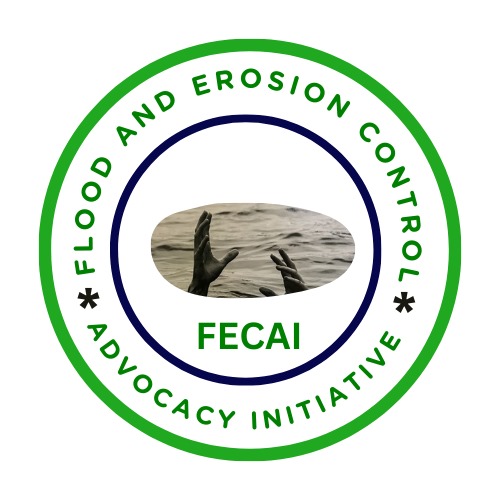FECAI's Strategic Approaches

FECAI
FECAI is a dedicated NGO focused on combating flooding and erosion through advocacy, education, and sustainable solutions. It partners with communities, policymakers, and experts to promote resilience, policy development, and environmental conservation for future generations.
FECAI's Strategic Approaches
Identify Vulnerable Communities
Focus on urban areas facing flooding and pollution, especially where waste management is a critical issue.
Partner with Key Stakeholders
Collaborate with government agencies, environmental NGOs, and private companies involved in waste management and flood prevention.
Conduct Community Outreach
Educate stakeholders on the importance of waste management in flood prevention and oil pollution mitigation.
Collaborate with Research Organizations
Partner with research initiatives in waste management, flood mitigation, and oil spill response for data-driven solutions.
Focus on Collaboration, Not Competition
Seek opportunities for cooperation to complement existing efforts rather than competing with other initiatives.
Incorporate Best Practices
Study existing methods and integrate best practices, innovating where gaps are found.
Use Data to Understand Local Challenges
Leverage FECAI’s data to study waste disposal habits, flood-prone areas, and the impact of oil spills.
Incorporate Community Knowledge
Include indigenous and local practices in waste management and flood mitigation efforts.
Address Waste Management Issues
Focus on inadequate waste collection systems, lack of recycling initiatives, and clogged waterways contributing to floods.
Advocate for Climate-Resilient Policies
Push for policies that prioritize sustainable land and water management for climate resilience.
Enhance Flood Response
Integrate waste management into flood mitigation strategies for more effective response efforts.
Address Oil Pollution
Improve preparedness for oil spill management during flood cleanup to prevent long-term environmental damage.
Fill Gaps with Innovative Solutions
Introduce community-driven waste segregation and oil spill response training to address existing challenges.
Invest in Research and Training
Build expertise in integrated waste management and oil spill response as part of flood management strategies.
Stay Updated on Technological Advances
Keep up with innovations like oil-absorbent materials and waste-to-energy solutions to enhance impact.
Conduct Workshops and Training Programs
Transfer knowledge to community members and local authorities through targeted education sessions.
Promote Waste as a Flood Hazard
Develop programs focusing on the role of waste in flood hazards and prevention.
Launch Drainage Clearing Drives
Organize regular community clean-up initiatives to remove debris from waterways and prevent blockages.
Run Recycling Campaigns
Teach communities how to reduce waste that could clog drainage systems, reducing flood risks.
Advocate for Integrated Policies
Push for policies linking waste management and flood mitigation, ensuring local governments prioritize sustainable waste solutions.

